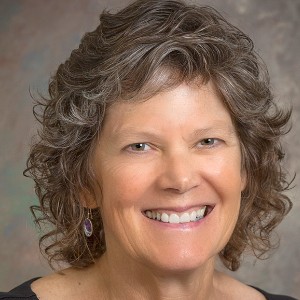Start date June 26, 2024
Time 1:00 PM - 4:00 PM EST
Price 159.00 USD
Register before June 26, 2024
After an introductory presentation by Professor Sheri Madigan (Calgary, Canada) on the most current state of attachment research, Dr. Or Dagan (New York, USA) will discuss his research on the differences between single-parent and two-parent families. How does attachment differ in one family type compared to the other? Are there advantages and disadvantages to having multiple attachment figures in the family? And what can you do as a caregiver when attachment is under pressure? Finally, Professor Mary Dozier (Delaware, USA) will elaborate on what we as caregivers can do when parents' behavior can lead to attachment problems with their child.
Would you like to stay informed about all our courses and webinars? Sign up for our free newsletter!
After participating in this webinar, attendees will be able to:
Opening by the host, Dr. Guido van de Luitgaarden | 5 minutes
Presentation by Dr. Sheri Madigan (Calgary, Canada): "Attachment research, theory and practice: the state of the art" followed by a question and answer session | 55 minutes
Short break | 5 minutes
Presentation by Dr. Or Dagan (New York, USA): "Attachment in single parent families" followed by a question and answer session | 55 minutes
Short break | 5 minutes
Presentation by Dr. Mary Dozier (Delaware, USA): "Improving attachment quality among vulnerable infants and young children: The Attachment and Biobehavioral Catch-up Approach" followed by a question and answer session | 55 minutes
Closing remarks by the host | 5 minutes


Sheri Madigan is a registered clinical psychologist and professor of Determinants of Child Development at the University of Calgary in Canada. She is the director of the Madigan Lab at her university: a research group focused on understanding the impact of childhood experiences on cognitive development and the mental well-being of young people. Her research involves practice-relevant topics such as attachment, ACEs, child abuse, and the influence of parents' mental well-being on their children.
She has published nearly 200 articles, books, and chapters on these topics.
In her introductory contribution, Sheri will discuss the most recent research on attachment and its implications for clinical practice.


Mary Dozier is a professor of psychological and brain sciences at the University of Delaware in the United States. She has studied the development of young children in foster care and those living with neglectful biological parents, focusing on challenges in attachment and regulatory skills. Together with her research team, she developed the Attachment and Biobehavioral Catch-up (ABC) intervention for parents of vulnerable infants. Randomized clinical trials have demonstrated that ABC is effective in improving parental sensitivity and the behavioral and biological functioning of children. In 2016, she was named the Francis Alison Professor, the highest faculty honor at the University. In 2018, Mary received the International Society for Infancy Studies Translational Research Award and in 2019, she received the American Psychological Association Urie Bronfenbrenner Award for lifetime contribution to developmental psychology in service to science and society.
This talk will provide an overview of a brief home visiting program, Attachment and Biobehavioral Catch-up (ABC), designed to enhance young children's attachment quality through improving parents' sensitivity. The rationale for each of the three intervention targets (increasing nurturance and following the lead and reducing frightening behavior) will be discussed and the method of implementation will be described. Intervention outcomes in terms of child attachment quality and self-regulation will be discussed.


Or Dagan received his doctorate (Ph.D.) in Clinical Psychology from the New School for Social Research in New York City, where he also served as a Clinical Consultant. He completed post-doctoral research fellowships at the Developmental Stress and Prevention lab at Stony Brook University's Department of Psychology, and at the Clinical Child and Family Studies Unit at Vrije Universiteit Amsterdam. Currently, he is a professor of clinical psychology at Long Island University, as well as a clinical psychologist and supervisor at a private practice.
In his lecture, he will focus on recent developments in non-traditional family structures, particularly the increasing number of single-parent families. He will share research-based insights on how his team has discovered that close relationships of children with both parents—not just one parent (mother or father)—are crucial for their mental health. He will discuss how these findings have significant implications for supporting families in clinical practice.
USA / Canada
ECB Education is approved by the American Psychological Association to sponsor continuing education for psychologists. ECB Education maintains responsibility for this program and its content. For those who would like to earn CE-credits, a post-test constitutes part of the course. Upon successful completion and answering at least 70% of the post-test questions correctly, we will award 3 credits.
The attendance fee is 159.00 USD and includes:
You can register via our registration form.
Can't make it yourself? Tell a colleague about this webinar!
Due to a limited number of available places, it is important to register in time to be sure of a place to participate.
To register immediately, click here